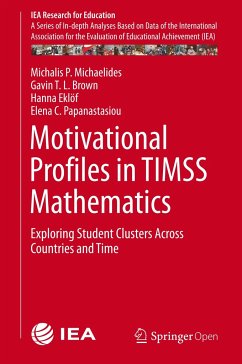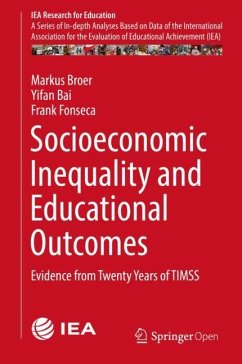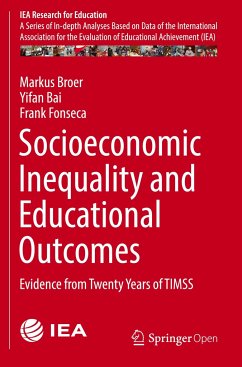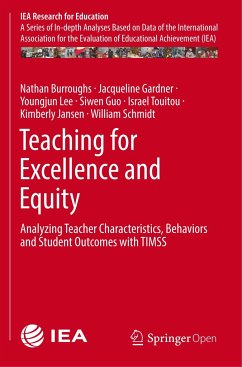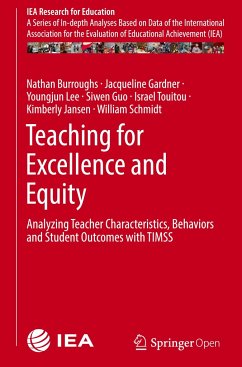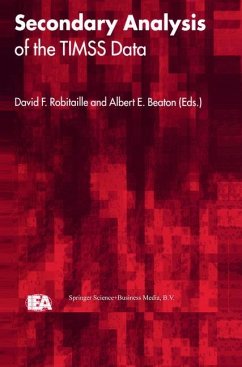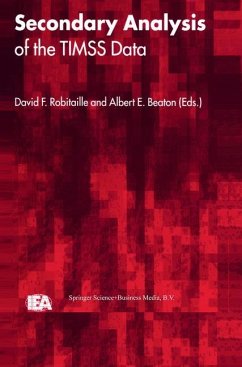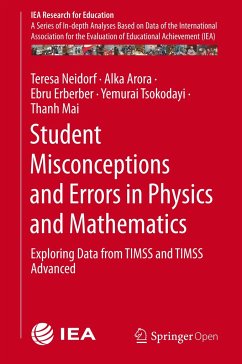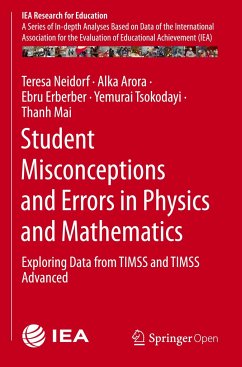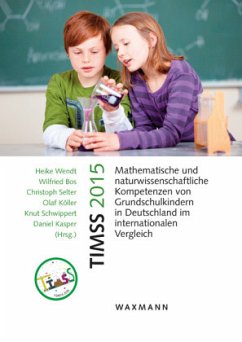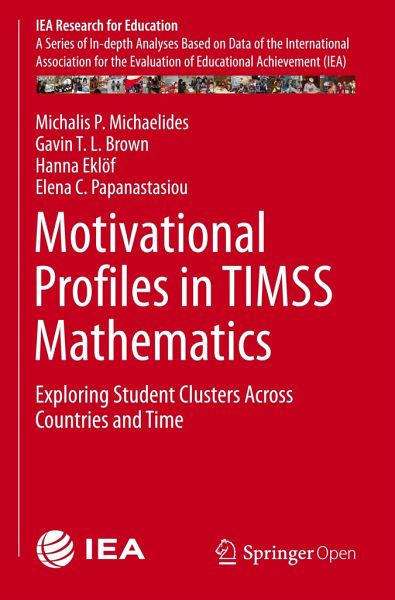
Motivational Profiles in TIMSS Mathematics
Exploring Student Clusters Across Countries and Time

PAYBACK Punkte
19 °P sammeln!
This open access book presents a person-centered exploration of student profiles, using variables related to motivation to do school mathematics derived from the IEA's Trends in International Mathematics and Science Study (TIMSS) data. Statistical cluster analysis is used to identify groups of students with similar motivational profiles, across grades and over time, for multiple participating countries.While motivational variables systematically relate to school outcomes, linear relationships can obscure the diverse makeup of student subgroups, each with varying combinations of motivation, emo...
This open access book presents a person-centered exploration of student profiles, using variables related to motivation to do school mathematics derived from the IEA's Trends in International Mathematics and Science Study (TIMSS) data. Statistical cluster analysis is used to identify groups of students with similar motivational profiles, across grades and over time, for multiple participating countries.
While motivational variables systematically relate to school outcomes, linear relationships can obscure the diverse makeup of student subgroups, each with varying combinations of motivation, emotions, and attitudes. In this book, a person-centered analysis of distinct and meaningful motivational profiles and their differences on sociodemographic variables and mathematics performance broadens understanding about the role that motivation characteristics play in learning and achievement in mathematics.
Exploiting the richness of IEA's TIMSS data from many countries, extracted clusters reveal consistent, as well as certain nuanced patterns that are systematically linked to sociodemographic and achievement measures. Student clusters with inconsistent motivational profiles were found in all countries; mathematics self-confidence then emerged as the variable more closely associated with average achievement. The findings demonstrate that teachers, researchers, and policymakers need to take into account differential student profiles, prioritizing techniques that target skill and competence in mathematics, in educational efforts to develop student motivation.
While motivational variables systematically relate to school outcomes, linear relationships can obscure the diverse makeup of student subgroups, each with varying combinations of motivation, emotions, and attitudes. In this book, a person-centered analysis of distinct and meaningful motivational profiles and their differences on sociodemographic variables and mathematics performance broadens understanding about the role that motivation characteristics play in learning and achievement in mathematics.
Exploiting the richness of IEA's TIMSS data from many countries, extracted clusters reveal consistent, as well as certain nuanced patterns that are systematically linked to sociodemographic and achievement measures. Student clusters with inconsistent motivational profiles were found in all countries; mathematics self-confidence then emerged as the variable more closely associated with average achievement. The findings demonstrate that teachers, researchers, and policymakers need to take into account differential student profiles, prioritizing techniques that target skill and competence in mathematics, in educational efforts to develop student motivation.





